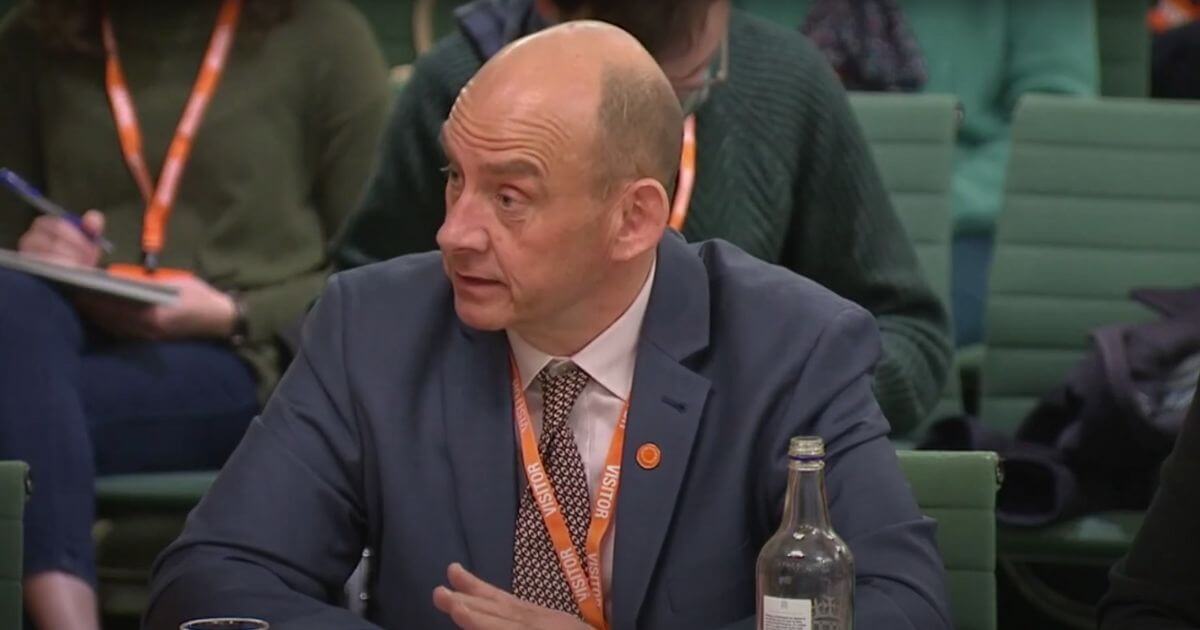A senior palliative care boss has warned that patients could be pushed towards an assisted death if assisted suicide services end up better funded than hospices.
Following the Third Reading of the Terminally Ill Adults (End of Life) Bill, Toby Porter, the chief executive of Hospice UK, which represents more than 200 hospices, said Keir Starmer’s insistence that he would find the money to fund an assisted suicide service could leave hospices underfunded and this would be a “betrayal of the population”.
Porter, who gave evidence to the assisted suicide Bill Committee in January, said “You could very easily see that everybody’s energy goes into [assisted suicide] over the next few years”.
The Government’s impact assessment estimated that the number of people opting for an assisted death was likely to be under 1 per cent based on comparable jurisdictions.
“It would be very quixotic if all our energies went into how this 1 per cent will die and making sure they have the choice that they want and the MPs have perfectly correctly decided they should have, but we did nothing about the all of the choices that should exist within palliative care, for the 99 per cent, if you like”.
“You can’t but note a moral question mark over the assumption we all make – until we hear otherwise – that an assisted dying service will be fully state funded, whereas currently the palliative care provided by hospices is currently only 30 per cent state funded and 70 per cent funded by charity”.
“If palliative care gets no investment and all of the attention goes in [to assisted suicide] that will mean the needs of the 1 per cent will be prioritised over the needs of the 99 per cent”.
A moral and practical disgrace
Porter previously raised similar concerns when giving evidence to the assisted suicide Bill Committee. He said “an outcome in which someone chose an assisted death because of a real or imagined fear that they could not get pain relief or other symptom alleviation, or because their family would not get support through their illness, would clearly be a moral and practical disgrace for any country”.
Earlier this year, Parliament was accused of granting a “blank cheque” for Kim Leadbeater’s assisted suicide Bill amid an outcry from MPs concerned about cost implications in an underfunded palliative care sector.
In January, as part of the process for passing a bill, MPs had to agree on a ‘money resolution‘ for Leadbeater’s Terminally Ill Adults (End of Life) Bill before it could move on to Committee Stage.
The resolution said that – for any Act that might result from the Bill – “it is expedient to authorise the payment out of money provided by Parliament of any expenditure incurred under or by virtue of the Act by the Secretary of State, and any increase attributable to the Act in the sums payable under or by virtue of any other Act of money so provided”.
Sir John Hayes MP focused on the vague wording of the resolution saying Kim Leadbeater “says that this is not a blank cheque, but you can’t get much more blank than that can you? Essentially, any monies associated with the Bill—if it becomes an Act—will be provided”.
“[W]e have to ask the question”, he went on, “where will that money come from? Presumably it can come only from existing resource, and one assumes palliative care”.
Spokesperson for Right To Life UK, Catherine Robinson, said “The apparent commitment to fund a state assisted suicide service and the lack of any corresponding commitment to ensure full state funding for palliative care, risks creating a perverse push towards assisted suicide since one service could be readily available while the other is not”.
“For vulnerable people near the end of their lives, it is especially concerning that assisted suicide could end up becoming the default, simply because it is available and better funded than palliative care”.












